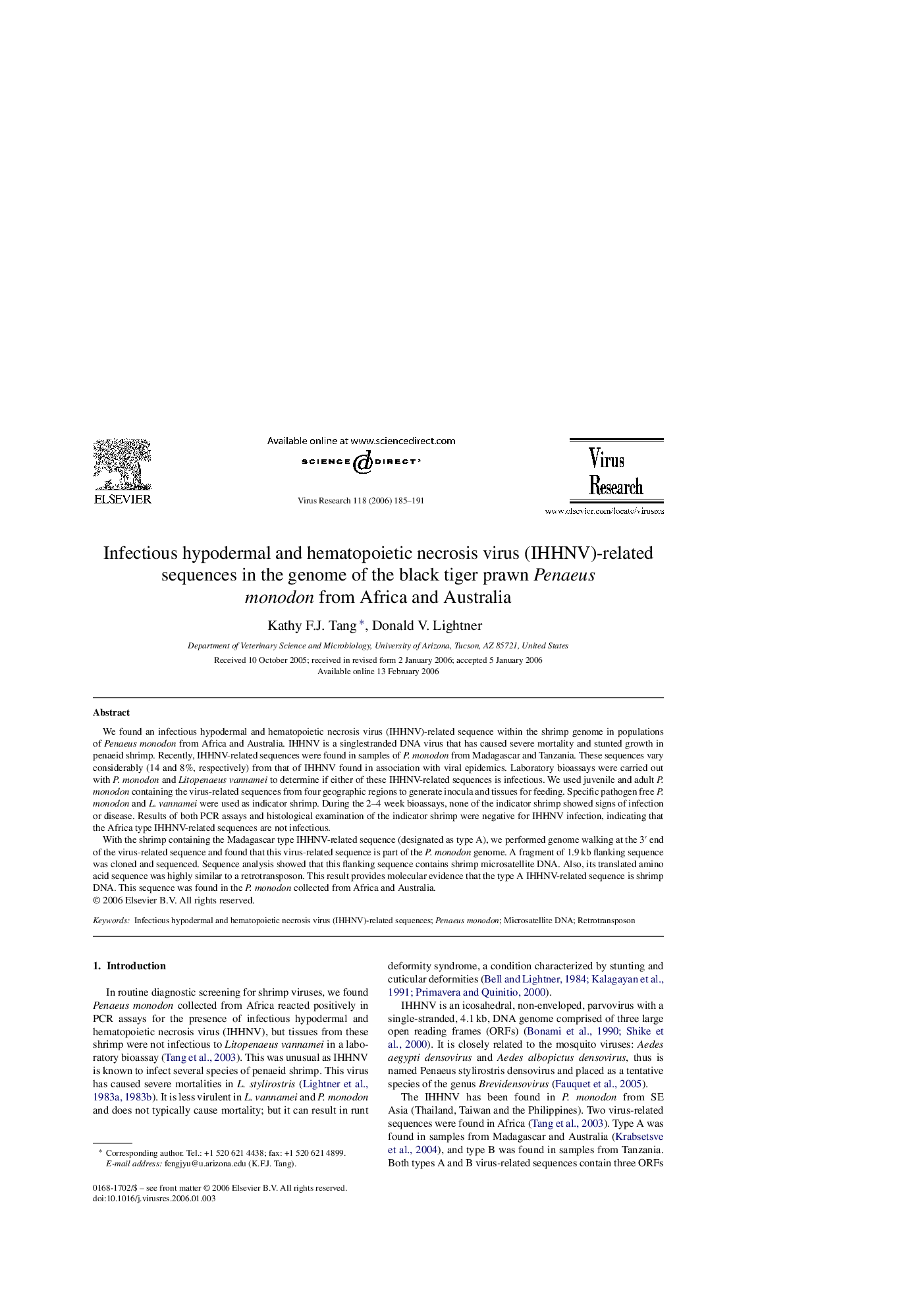| Article ID | Journal | Published Year | Pages | File Type |
|---|---|---|---|---|
| 3431356 | Virus Research | 2006 | 7 Pages |
We found an infectious hypodermal and hematopoietic necrosis virus (IHHNV)-related sequence within the shrimp genome in populations of Penaeus monodon from Africa and Australia. IHHNV is a singlestranded DNA virus that has caused severe mortality and stunted growth in penaeid shrimp. Recently, IHHNV-related sequences were found in samples of P. monodon from Madagascar and Tanzania. These sequences vary considerably (14 and 8%, respectively) from that of IHHNV found in association with viral epidemics. Laboratory bioassays were carried out with P. monodon and Litopenaeus vannamei to determine if either of these IHHNV-related sequences is infectious. We used juvenile and adult P. monodon containing the virus-related sequences from four geographic regions to generate inocula and tissues for feeding. Specific pathogen free P. monodon and L. vannamei were used as indicator shrimp. During the 2–4 week bioassays, none of the indicator shrimp showed signs of infection or disease. Results of both PCR assays and histological examination of the indicator shrimp were negative for IHHNV infection, indicating that the Africa type IHHNV-related sequences are not infectious.With the shrimp containing the Madagascar type IHHNV-related sequence (designated as type A), we performed genome walking at the 3′ end of the virus-related sequence and found that this virus-related sequence is part of the P. monodon genome. A fragment of 1.9 kb flanking sequence was cloned and sequenced. Sequence analysis showed that this flanking sequence contains shrimp microsatellite DNA. Also, its translated amino acid sequence was highly similar to a retrotransposon. This result provides molecular evidence that the type A IHHNV-related sequence is shrimp DNA. This sequence was found in the P. monodon collected from Africa and Australia.
